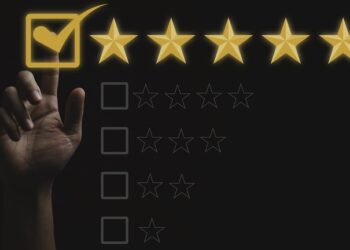The publishing manager for dictionaries at Oxford University Press Southern Africa reflects on the first substantial bilingual IsiZulu dictionary published in 40 years – a project she started working on almost five years ago.
As the first substantial bilingual IsiZulu dictionary in 40 years reaches bookstores, I find myself thinking more and more often about my grandfather. Born on a farm in KwaZulu-Natal in the early 1900s, he grew up speaking IsiZulu – thanks to being looked after as a toddler by a young black child who would have been better off in school himself..
When he turned eight, my grandfather began a long stint in boarding school, initially in the Free State, but later in England. On his return to KwaZulu-Natal, he set about re-learning IsiZulu, lost through the years of being away from South Africa. His grammar book and dictionary contain many pencilled notes as he struggled to acquire the bones of what had been intuitive and natural – a second mother tongue.
Although he spent most of the rest of his life in Cape Town, far from KwaZulu-Natal and the need and opportunity to speak IsiZulu, many an afternoon would find him standing at the bus stop opposite our house determined to speak to domestic workers on their way home, to practice his IsiZulu. They spoke IsiXhosa, he spoke IsiZulu, but they mostly understood one another – at least about the minor doings of the day. I have a feeling his questions about politics drew more guarded responses in the 1980s.
My grandfather failed to pass on his ability in IsiZulu to any of his family. Like many people with bilingual parents or family members, we allowed the skill to die out with him.
Before my daughter was born, my husband and I talked about the fact that neither of us was strong enough in another language to make it part of her early life. We felt that this would have been a wonderful gift, but it wasn’t one we could provide. Instead, we encouraged her nanny to speak as much IsiXhosa as possible to her and were happy when we saw it was working – in fact, I started learning IsiXhosa words before she was two because those were what she responded to best. And then, as she started to actually speak English, IsiXhosa unintentionally dropped away. As her English language skills bloomed and sprouted, the only IsiXhosa word we continued to use was Mamela! (Listen!) – which she still knows and recognises as a warning sign.
What has changed in South Africa in the period between my grandfather learning IsiZulu and my daughter failing to learn IsiXhosa?
An enormous amount.
For a start, Black children are no longer kept from school in order to look after White children a little younger than themselves. Black parents are free to make choices about the schools that their children attend, especially if they have the means to support their choices. And all South African learners are encouraged by the same school curriculum to develop bilingual language skills, maintaining their home language, while learning one of the other official South African languages.
On a different level, the world around us is changing all the time and as the world changes, so language changes, since it’s language that we use to communicate about the world. When journalists have asked me what has changed for IsiZulu and for English in the last 40 years, it’s not hard to answer: South Africa has changed enormously (human rights, amalungelo esintu, are now part of the curriculum); technology has changed enormously (cellphones, amaselula, as well as the internet, i-intanethi, are here to stay); our private lives have undergone enormous change (imishanguzo now refers to antiretroviral drugs, not herbs used as medicine); and we all now need to be able to talk to one another as fellow South Africans.
Most South Africans now feel the need to acquire English, as shown by the numbers of those choosing to study it at national senior certificate level; usually the aim is to be better-positioned for success at school and in their working life. For this reason, many attend schools that were once only for White, Indian or so-called Coloured children. Others attend township schools where the community has opted for a language policy that favours English, whether or not teachers have the skills or resources to implement this effectively, and whether or not it is the best long-term choice for their children (much research suggests that mother-tongue instruction initially is better).
From grade 4, English is often the language used for all subjects. At this crucial period, learners are sometimes lucky enough to have dictionaries to help them with speaking and writing in their additional language.
For the luckiest ones, these dictionaries will be bilingual dictionaries with translations in their home language – like Oxford’s newest IsiZulu-English dictionary – enabling learners to move from the home language word they already know to the English word they are trying to learn. These learners find their dictionaries a quick and useful resource as they learn specialist terms for Maths, Science, Geography and so on.
Their peers, wanting to learn IsiZulu, will also find what they need – examples showing how words are made into real sentences, helping them to avoid common mistakes.
And their teachers will be spared the role of being “walking dictionaries”, taking up their valuable teaching time interpreting and translating instead of being able to focus on the content of their subject.
If this dictionary can support learning, make teaching time more effective, and boost our ability to talk to one another as equals in different languages, we will have achieved everything we could have hoped for when we started working on it – and more.














